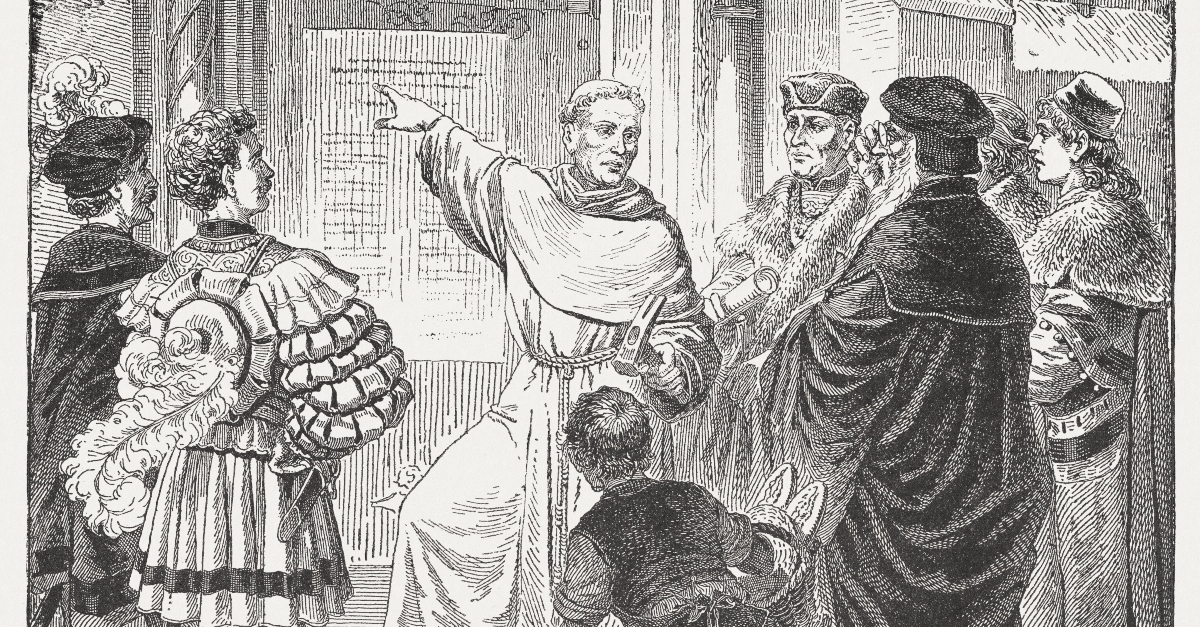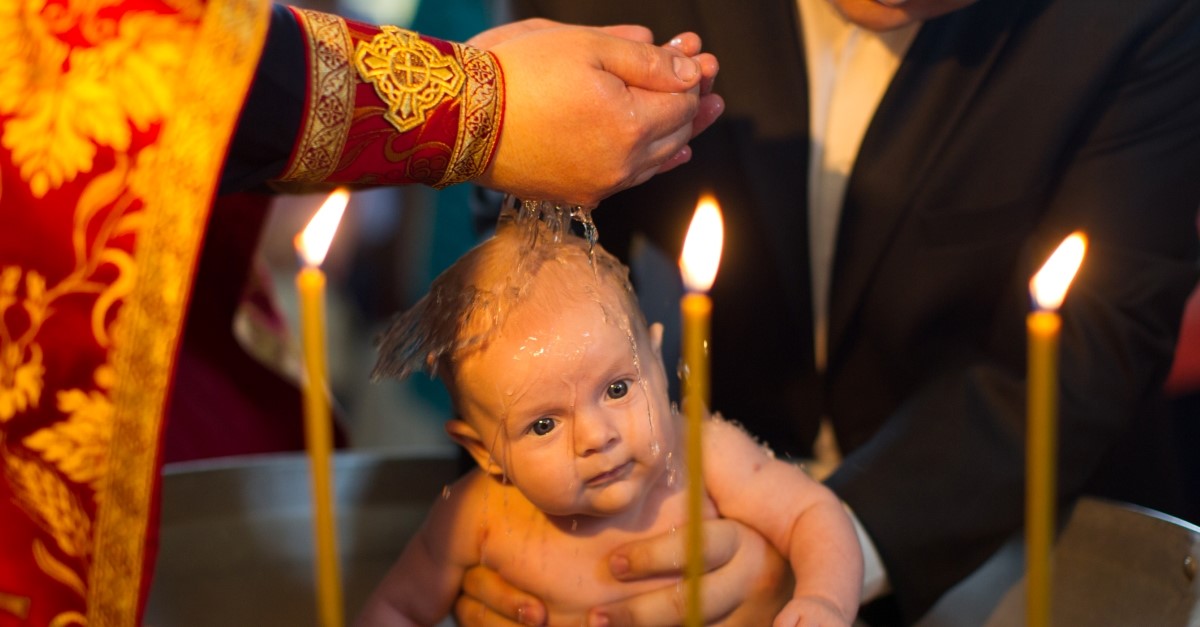Lutheranism is a major branch of Protestant Christianity that traces its origins to the teachings of Martin Luther, a 16th-century German theologian and reformer. Martin Luther was alive during the time of the Protestant Reformation. Luther was formally an Augustinian friar before becoming the leader and founder of Lutheranism. Luther's efforts to reform the Catholic Church sparked what became known as the Protestant Reformation, resulting in the formation of new Christian denominations, with Lutheranism becoming one of the earliest and most influential. Today, Lutheranism is practiced by millions of believers around the world, with significant communities in Europe, the Americas, and Africa.
At the heart of Lutheran belief is the principle of “justification by faith alone” (sola fide), which teaches that salvation is a gift from God, received through faith in Jesus Christ, rather than through human efforts or good works. Another foundational principle is “Scripture alone” (sola scriptura), emphasizing that the Bible is the ultimate authority in matters of faith and doctrine. This focus on faith and Scripture shapes how Lutherans worship, understand God’s grace, and engage with the world.
Lutherans also hold to the importance of sacraments, with baptism and the Lord's Supper (Holy Communion) being central acts of faith. Baptism is viewed as an essential part of entering the Christian community, while the Lord’s Supper is celebrated as a means of receiving God's grace. Though Lutheran doctrine shares similarities with other Protestant traditions, it maintains distinct beliefs—particularly regarding how Christ is present in the sacraments and the role of liturgical worship.
Through its confessions of faith, found in documents like the Augsburg Confession, and its emphasis on grace, Scripture, and faith, Lutheranism provides a structured but accessible path for believers to grow in their relationship with God.
How Are Lutherans Different Than Catholics?
Lutherans and Catholics share a common Christian foundation of faith in Jesus Christ and the virgin birth, but differ in several significant theological and practical ways. One of the primary differences lies in the source of authority. Lutherans adhere to Sola Scriptura, meaning Scripture alone is the ultimate guide for faith and practice, while Catholics rely on both Scripture and Church Tradition, interpreted through the Magisterium (the teaching authority of the Church, including the Pope and bishops.
Another key distinction is in how each tradition understands salvation. Lutherans emphasize justification by faith alone (Sola Fide), teaching that salvation is a gift from God, received through faith in Christ without the necessity of good works. Catholics, however, believe that while grace initiates salvation, good works and sacraments play a role in maintaining a state of grace.
Additionally, The role of clergy and church leadership also varies. While Lutherans embrace the concept of the “priesthood of all believers,” meaning every Christian has direct access to God, the Catholic Church maintains a hierarchical system with the Pope as the spiritual leader and priests serving as mediators between God and the people. Similarly, Lutherans honor Mary and the saints but do not pray to them, whereas Catholics venerate them and ask for their intercession.
As mentioned earlier as the start of Lutheranism, Lutherans reject the doctrines of purgatory and indulgences, which were among the practices Martin Luther criticized in his 95 Theses in 1517, a document that helped spark the Protestant Reformation.
Why are Lutherans Called Protestants?
The term Protestant traces its origin to the early days of the Protestant Reformation, a movement sparked by Martin Luther in 1517. Luther’s posting of the 95 Theses on the door of the Wittenberg Castle Church challenged several practices of the Catholic Church, particularly the sale of indulgences. His theses argued that salvation was a gift of grace through faith alone (Sola Fide) and called for reforms to bring the Church in line with biblical teachings. This act is widely regarded as the beginning of the Protestant Reformation, a movement that led to the formation of new Christian traditions.
The term "Protestant" was formally introduced during the Diet of Speyer in 1529, when several German princes and cities protested against the imperial decision to revoke religious freedoms that had been granted in 1526. These leaders rejected the enforcement of the Edict of Worms, which had banned Luther's writings, arguing that obedience to God should take precedence over imperial decrees. Their protest gave rise to the term "Protestant," initially describing those who opposed the Catholic Church's authority. The word "Protestant" derives from the Latin term "protestari", which means "to declare publicly or to protest". Initially, it referred to those who objected to the re-imposition of Catholic orthodoxy at Speyer. Over time, the term expanded beyond this political protest to describe the broader movement that grew out of Martin Luther’s Reformation, encompassing those who rejected the authority of the Pope and adhered to the belief that Scripture alone (Sola Scriptura) is the ultimate source of authority in Christian life
Over time, "Protestant" evolved into a term used to describe a wide range of Christian movements that emerged from the Reformation, such as Lutherans, Calvinists, and Anglicans. These movements shared a common emphasis on personal faith, the authority of Scripture (Sola Scriptura), and a rejection of papal authority. Today, Protestantism encompasses various denominations, including Lutherans (e.g., Evangelical Lutheran Church in America, Lutheran Church–Missouri Synod), Reformed Churches (e.g., Presbyterian Church, United Church of Christ), and Anglicans/Episcopalians (e.g., Church of England, Episcopal Church USA).
Additionally, the Baptists, Methodists, Pentecostals (Assemblies of God, Church of God in Christ), and Anabaptists (Mennonites and Amish) are part of this broad tradition. Evangelical and non-denominational churches also trace their roots to Protestant ideals, focusing on personal conversion, faith in Christ, and the authority of Scripture. Despite their diversity, these groups are united by the core principles of the Reformation and their shared rejection of the centralized authority of the Catholic Church.
The Lutheran Church: 15 Things to Know
Now that we reviewed a history of Lutheranism, let's take a look at some more details about their faith. It is good for everyone to be knowledgeable about the Lutheran denomination of Christianity and educated in its beliefs.
1. Lutheranism Began During the Protestant Reformation
The first thing to understand about Lutherans is that Lutheranism began during the Protestant Reformation. The Protestant Reformation was a true time of change for Christianity. This event in history marked the turn of the Christian denomination.
The Protestant Reformation brought about the separation of the Catholic Church with a new denomination, known as Protestantism. In other words, a sect of believers chose to break away from the Catholic Church and start Protestantism.
Within the breakaway from the Catholic Church, Martin Luther started Lutheranism. Martin Luther is known for nailing the Ninety-Five Theses, originally known as the Disputatio pro declaratione virtutis indulgentiarum, to the Castle Church in Wittenberg, Germany. The Protestant Reformation began on October 31, 1517, when Martin Luther nailed his Ninety-Five Theses to the door of the Castle Church in Wittenberg, Germany. This date is commemorated as Reformation Day and is often considered the starting point of the Reformation movement, which aimed to address and reform various practices within the Roman Catholic Church.
Luther was seen as a radical and a nuisance to the Catholic Church because Luther was going against the teachings of the Roman Catholic Church. It is important for Christians to know the genesis of Lutheranism and how it was pivotal to the Christian faith.
The Protestant Reformation allowed us to read the Bible for ourselves and learn the truth of the scriptures without it being tampered with by the Roman Catholic Church.
Luther was not the only reformer during the Protestant Reformation as John Calvin was also a reformer during this era in history. Thus, Lutheranism began during the Protestant Reformation in the 16th century.

(drawing of Martin Luther with his 95 Theses, Photo credit: ©Getty Images/ZU_09)
2. Martin Luther Preferred the Title ‘Evangelical’
A second thing Christians should know about Lutherans is that Martin Luther preferred the title “evangelical” rather than Lutheran. The term “Lutheran” was actually used first by Martin Luther’s opponents.
Martin Luther wanted to use the term “evangelical,” but this term started to be used in reference to other reformers such as John Calvin and Ulrich Zwingli.
Therefore, followers of Martin Luther called themselves Lutherans and adopted the title for themselves by the middle of the 16th century (Ibid.).
3. Involved with a Synod
All Lutherans are part of a synod. Each Lutheran congregation is part of either a national or a regional organization, called a synod. Synods are important parts of the Lutheran community as synods “unite the work of congregations within their areas, serve as regional support, and guide the hiring of pastoral and other staff candidates”.
The largest synods are the Evangelical Lutheran Church in America, the Lutheran Church–Missouri Synod, and the Wisconsin Evangelical Lutheran Synod.
Each synod holds different beliefs concerning biblical inerrancy: communion with other Christians, women’s role in the church, and other issues such as homosexuality and same-sex marriage. Depending on which synod a Lutheran belongs to will impact how they view the Bible, others, and morals.
4. The Book of Concord
A fourth thing Christians should know about Lutherans is The Book of Concord. The Book of Concord is the historical doctrinal standard of the Lutheran belief.
Within The Book of Concord, there are ten creedal documents seen as authoritative for Lutherans, which include the Apostles’ Creed, the Nicene Creed, the Athanasian Creed, the Small Catechism of Martin Luther, the Large Catechism of Martin Luther, the Augsburg Confession, the Apology of the Augsburg Confession, the Smalcald Articles of Martin Luther, the Treatise on the Power and Primacy of the Pope, and the Formula of Concord (Ibid.).
Each of these ten creedal documents is seen as crucial to Lutheran doctrine. It is vital for Christians to be aware of The Book of Concord and the emphasis that is placed on this book by Lutherans.
5. The Augsburg Confession
A fifth thing for Christians to know about Lutherans in the Augsburg Confession. The Augsburg Confession is the number one confession for Lutherans, and it is seen as the confession that makes a person a Lutheran.
Philip Melanchthon wrote the Augsburg Confession in 1530; ever since then, it has become the primary confession for Lutherans (Ibid.).
Contained with the Augsburg Confession is the profession of faith of the Lutheran Church and what they believe about God, the Bible, salvation, justification, redemption, and other key doctrinal beliefs.
The confession also covers the sacraments, particularly baptism and Holy Communion, asserting that these are means by which God's grace is communicated. It teaches that baptism is necessary for salvation and that Christ is truly present in the Lord's Supper. Moreover, it addresses the doctrine of original sin, the need for repentance and forgiveness, and the importance of church unity, though it rejects practices such as the veneration of saints and the authority of the Pope.
The Augsburg Confession is foundational not only for Lutheran identity but also for interfaith dialogue. It serves as the first and primary document of the Book of Concord, the collection of Lutheran confessional writings. For many Lutherans, to accept the teachings of the Augsburg Confession is to fully align with the Lutheran understanding of the Christian faith, marking it as the key document that defines what it means to be Lutheran to this day

(the sacrament of Communion, photo credit: ©GettyImages/IngridHS)
6. The Two Sacraments
A sixth thing Christians should know about Lutherans is the two sacraments. The two sacraments of Lutheranism are baptism and communion. Lutherans call these sacraments “rites.” Catholics, on the other hand, recognize seven sacraments, which include the Eucharist, Confirmation, and Marriage. While both celebrate the Eucharist, Lutherans believe in the real presence of Christ through consubstantiation, meaning that Christ is present "in, with, and under" the bread and wine. Catholics teach transubstantiation, holding that the bread and wine become the literal body and blood of Christ
Lutherans believe baptism is required for salvation (Ibid.). Communion is vital for Lutherans as they believe Jesus’ true blood and body is part of communion in the wine and in the bread.
Most reformers taught that wine, and bread are only symbolic of Christ, but Luther taught that Jesus’ blood and body were truly present in the wine and bread, not allegorical. Therefore, Lutherans place a high view on baptism and communion.
While we know as believers, that baptism is not required for salvation, Lutherans teach that it is. This is one of the main differences between Lutherans and Christians because the Bible never tells us that salvation depends upon baptism.
Rather baptism is simply an outward sign of your faith, but it does not cause a person to become saved.
7. Three Solas
A seventh thing Christians should know about Lutherans is the Three Solas. The Three Solas consist of the belief in grace alone, faith alone, and Scripture alone. In other words, the Three Solas teach that salvation is by grace alone (Sola Gratia) and faith alone (Sola Fide).
The third Sola of Scripture alone (Sola Scriptura) teaches that the Bible is everything we need to know about God and grow in our walk with Him. Martin Luther believed the Bible was “the cradle” of Christ.
The Three Solas are crucial to Lutherans, and it is good for Christians to know about the Three Solas and their meaning.
8. Salvation by Grace Through Faith
Lutherans believe salvation is by grace through faith alone, as stated in Ephesians 2:8-9 - "For it is by grace you have been saved, through faith—and this is not from yourselves, it is the gift of God— not by works, so that no one can boast."
Many Christians believe Lutherans have radically different doctrines than other Protestants, and while they have some different doctrinal views, they have the same view of salvation.
They believe a person cannot be saved apart from placing faith in Jesus by believing that He died for their sins, was buried, and on the third day was raised to life.
Salvation by grace through faith is a hallmark of Lutheran theology, and it ultimately caused him to question the Roman Catholic Church.
People did not have to pay through heaven or purchase indulgences. Instead, a person is saved by grace through faith as Luther discovered by his own Scripture reading and this is what he taught his followers, which continues into the present day.
9. Martin Luther Became an Exile
A ninth thing Christians should know about Lutherans is that Martin Luther became an exile. Luther was sent as an exile due to being a political enemy of Rome. Luther escaped his exile with the help of Frederick III, Elector of Saxony.
Luther was taken to Wartburg Castle at Eisenach, where he could remain safe from his enemies. During his time at the Wartburg Castle, he translated the New Testament into German and wrote many important writings such as the “Refutation of the argument of Latomu.”
Even though Martin Luther was exiled, he received help from his friend and could continue to write and spread Lutheranism for others to know the true message of the Bible. Lutherans continued to acknowledge Luther’s accomplishments through his exile and escape.
10. Becoming a Lutheran Pastor
Lutheran pastors begin their ministry journey through a discernment process, often involving prayer and guidance from mentors, to confirm their calling. Once the call to ministry is affirmed, aspiring pastors typically enroll in a Master of Divinity (M.Div.) program at a Lutheran seminary, such as Concordia Seminary. This four-year course of study emphasizes theological education, biblical languages (Greek and Hebrew), church history, and pastoral care. Students also gain hands-on experience through a 12-month internship, called vicarage, which allows them to serve under experienced pastors and engage with real-world ministry situations.
After completing their studies, candidates undergo ordination, a process that includes evaluation by church leaders, examinations, and an official "call" to serve a congregation. Upon receiving their first pastoral assignment, they are formally ordained as ministers and begin their service to the church community. Lutheran pastors focus on preaching, teaching, pastoral care, and community engagement. They are responsible for leading worship services, conducting sacraments such as baptism and Holy Communion, officiating weddings and funerals, and providing spiritual counseling. In addition to spiritual duties, they often manage church operations, offering leadership to the congregation and its staff.

(baptism sacrament, Photo Credit: ©Getty Images/Sviatlana Lazarenka)
11. What Do Lutherans Believe About Baptism?
As mentioned already, baptism is one of the two main sacraments observed by Lutherans. Lutherans believe baptism is a sacrament that offers forgiveness of sins, salvation, and new life in Christ. It is viewed as a means of grace, where God works through water and the Word to welcome believers into His family. Unlike denominations that see baptism as symbolic, Lutherans teach it as an act where God’s Spirit is truly present. They practice infant and adult baptism, trusting that salvation is based on God’s promise, not personal decision (Acts 2:38-39).
Baptism is performed through sprinkling or pouring, with the method being secondary to the spiritual transformation it brings. It marks entry into the Christian community and remains valid for life, even if faith falters, meaning it is never repeated. Baptismal promises made for infants are later affirmed at confirmation, where individuals embrace the faith they were baptized into, beginning a lifelong relationship with God through grace, faith, and community participation.
12. Lutheran Church Membership and Missions
In Lutheran churches, membership typically involves both spiritual commitment and participation in church life. Many Lutheran congregations encourage new members to begin by attending services regularly, participating in fellowship activities, and meeting with pastors or church leaders to express their desire to join. Baptism is often considered a prerequisite for membership, and individuals who were baptized as infants later affirm their faith through confirmation, marking them as full members within the church community.
Many churches also offer new member orientations, which provide opportunities to learn about the congregation’s mission, beliefs, and ways to get involved. Members are encouraged to contribute through volunteering and ministry opportunities, ranging from teaching Sunday School to participating in music ministries and outreach programs.
Church membership is not just about attending services but actively participating in the life of the congregation, promoting both personal growth and the church’s mission. Lutheran churches engage in a variety of local and global mission activities, focusing on serving both spiritual and physical needs through partnerships and outreach. Locally, Lutheran congregations often emphasize community service projects such as food pantries, homeless shelters, and youth programs. They also engage in initiatives that build connections with their neighborhoods, such as after-school programs, support for refugees, and disaster relief efforts.
Globally, Lutheran organizations like the Evangelical Lutheran Church in America (ELCA) and the Lutheran Church–Missouri Synod (LCMS) focus on missions in education, health, disaster response, and evangelism. Missionaries serve in Africa, Asia, and Latin America, supporting local churches, establishing schools, and providing healthcare. The ELCA’s "accompaniment" model emphasizes walking alongside communities, sharing resources, and respecting local leadership to ensure aid aligns with local needs, such as rebuilding after disasters or addressing mental health.
LCMS missionaries focus on long-term partnerships, offering theological training, planting churches, and participating in humanitarian aid and disaster relief efforts.
13. What is the Difference Between Lutheranism and Calvinism?
Lutheranism and Calvinism, though both products of the Protestant Reformation, diverge significantly in their views on predestination, atonement, election, and grace. Both traditions agree that salvation comes through God’s grace, but they interpret how God applies this grace very differently.
Lutherans teach single predestination, meaning God has chosen believers for salvation, but He does not predestine anyone to damnation. Instead, individuals have the free will to reject God’s grace. Additionally, Lutherans believe in universal atonement, which means Christ’s death on the cross was for the sins of all people, regardless of whether they come to faith. Salvation is offered freely, but faith must be nurtured, and individuals can fall from grace if they turn away from Christ (Hebrews 6:4-6).
In contrast, Calvinism emphasizes double predestination, teaching that God, from eternity, has chosen some people for salvation and others for condemnation. This view reflects the Calvinist belief in unconditional election, where God’s choice to save some is based entirely on His will, not on any action or faith of the individual. Calvinists also reject universal atonement, holding to limited atonement, meaning that Christ's sacrifice was intended only for the elect—those God has chosen to save.
A key difference between the two traditions lies in their understanding of grace. Lutherans believe in resistible grace, meaning that people can resist the work of the Holy Spirit and reject salvation. In contrast, Calvinism teaches irresistible grace, the idea that God’s grace will inevitably bring the elect to faith, regardless of their personal will. Once someone is elected to salvation, Calvinists believe they will persevere in faith until the end, known as the doctrine of the perseverance of the saints.
In governance, Lutheran churches tend to have hierarchical structures led by synods and bishops, while Calvinist churches adopt a Presbyterian or congregational system with leadership shared among elders. These theological and practical differences reflect distinct interpretations of Scripture, shaping how each tradition engages with faith, grace, and church life. While both affirm God’s sovereignty and the authority of the Bible, Lutherans place more emphasis on God’s grace for all and the role of human response, while Calvinists focus on God’s sovereignty in election and the ultimate fulfillment of His divine will.
15. 72 Million Lutherans in the World
A tenth thing Christians should know about Lutherans is that there are 72 million Lutherans in the world. These are pretty high numbers as it shows us that it is crucial for us to know about this denomination.
As the years pass, this number will likely continue to rise as more individuals identify as being Lutheran. As Christians, it is important for us to remember that Lutherans believe in Jesus as their God and Savior, and they also believe that salvation is by grace through faith.
In other words, they have the correct doctrine of salvation, which means they are saved. It is a dangerous business to begin to look down on different denominations simply because they are not in the denomination we are.
The Lutheran Church is a very large denomination within Protestantism, and it is important that we understand its major beliefs.
For further reading:
The Lutheran Church — 15 Facts To Know About Martin Luther, Lutheran History and Beliefs
What Is the Importance of Reformation Day?
10 Things to Know about Martin Luther and His 95 Theses
Photo Credit: ©iStock/Getty Images Plus/Igor Banaszczyk





